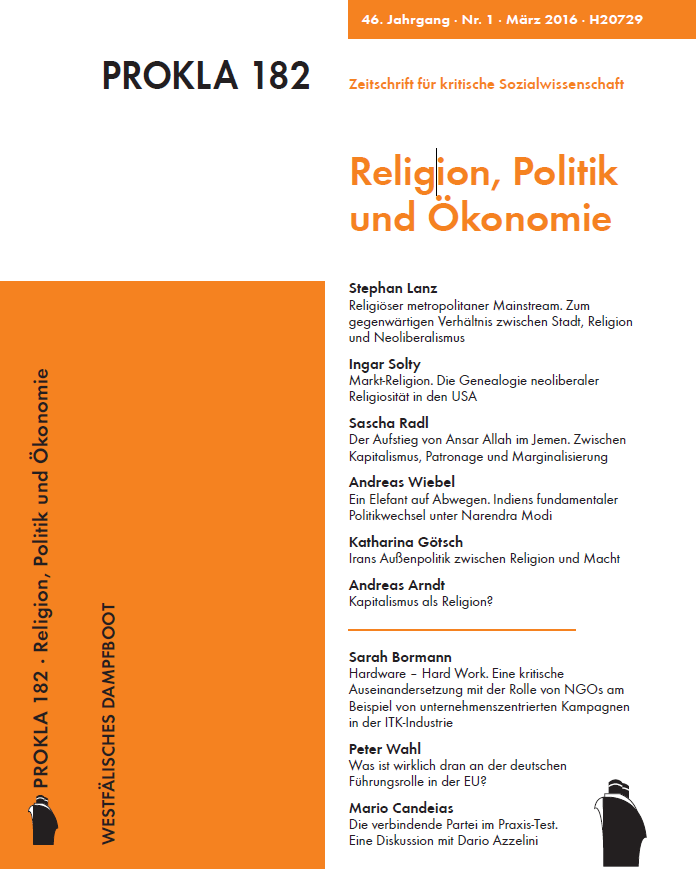Ein Elefant auf Abwegen.
Indiens fundamentaler Politikwechsel unter Narendra Modi
DOI:
https://doi.org/10.32387/prokla.v46i182.101Schlagwörter:
Religion, Indien, Narendra Modi, Hinduismus, Neoliberalismus, Nehru, HindutvaAbstract
Why did Narendra Modi become the new prime minister of India? What are the consequences of his election for Indian society? After giving a brief overview over hindunational principles and history, the article focuses on two aspects: the alliance between neoliberal economy and right-wing Hindunationalism (Hindutva) and Communalism, which can be seen as the political strategy to organize majorities for this two-headed project. By shifting towards a Hindu state, India said goodbye to the secular and pluralistic columns of Nehruvianism. On the surface Modi appears to be a big reformer, but underneath one can clearly see that his economic growth agenda benefits only parts of Indian society, and that on a structural level the Hindutva movement is fighting for a cultural turning point concerning language, religion and nation, called Hindi, Hindu, Hindustan.





